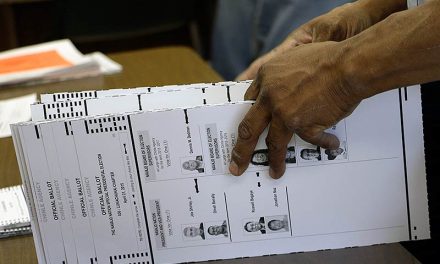
Two-day tribunal confronts challenges, gathers testimony
WINDOW ROCK
Become a walking memory for a loved one who is missing or has been murdered.
Grief by itself can be worthless because nothing can be bought with it.
It was a suggestion Tom Rodgers, acting president of the Global Indigenous Council and a member of the Blackfeet tribe, offered to grieving mothers who were desperately seeking their missing children on National Missing and Murdered Native Women and Girls Awareness Day, which is today.
Rodgers, who said he lost his mother and partner within the past six months, will be attending the Navajo Nation Missing and Murdered Indigenous Women & Relatives Tribunal at the Navajo Nation Museum in Window Rock today and tomorrow.
“I have experienced, firsthand, what grief can do to you,” Rodgers said on Tuesday. “It can attack your heart. It can attack every organ of your body. But grief is ultimately about choosing a new reality.
“I would have loved to have lived in the reality where my mother was alive and part of my life,” he said. “I would love to have moved into reality where Andrea was such a part of my life. But that reality is gone.”
Two-day event
The two-day event will bring together several state and tribal officials and families who’ve lost loved ones to murder or are still searching for them.
The purpose is to record testimony, which will then be presented to leaders in Washington, D.C., according to Charmaine Jackson, an advocate. She is director of Naalkid Productions, which organized the tribunal.
Rodgers will be guest speaking and host a Q&A after showing “Somebody’s Daughter,” directed by Rain.
Rodgers said he helped bring to fruition the idea of having a tribunal on the Navajo Nation because he didn’t just want families to retell their stories but to put action to it.
Grief is a powerful motivator that offered a stark path or an enlightening one.
“What you can do is choose a new reality,” Rodgers said. “And the new reality is to honor those who have went on to the other side and really give a testimonial to the depth of your love for them.
“That is truly what honor is about, and that is a life well-lived,” he said.
New Mexico State Sen. Shannon Pinto, a guest speaker and a panelist at the tribunal, said she’s continuing the legacy of her late grandfather Sen. John Pinto, and then what was started by state Sen. Deb Haaland.
“It was an issue that he was very dear to his heart,” Pinto said of her late grandfather.
Pinto, a member of the New Mexico Missing and Murdered Indigenous Women and Relatives Task Force, said she wanted action to be taken immediately.
Creating partnerships
The New Mexico task force is comprised of representatives from tribes across the state and includes state legislators and community partners.
The task force collaborates with tribal governments, tribal law enforcement, and the U. S. Department of Justice to determine how to confront the crisis by creating partnerships and improving reporting and investigations while supporting families and communities with resources.
Pinto said one of the challenges is working with jurisdictional lines that create a “hindrance” for families and the various law enforcement agencies involved in handling missing and murdered cases.
“It’s a bit of a hindrance,” Pinto said, referring to the jurisdictional issues.
“And it’s almost every issue,” she said. “Hopefully, we can change those boundaries. We have to move forward for our people; we have to work together as a person, as Native American people.”
One of the hindrances is reporting a missing person.
According to a U.S. Government Accountability Office report, federal law requires law enforcement agencies, except tribal law enforcement, to report missing children under 21.
The enactment of Savanna’s Act in 2020 requires tribal consultations on how to improve data and access, which could improve data collection on the number of missing and murdered Indigenous people.
According to the GAO report, Department of the Interior law enforcement agencies investigating cases of missing or murdered women in Indian Country have engaged in other efforts.
The report also found intergovernmental coordination and data collection have not been implemented.
The report stated the Not Invisible Act of 2019, which requires the secretary of the Interior, in coordination with the attorney general, to appoint members to a Joint Commission on Reducing Violence Against Indians by February 2021. But as of October 2021, no members have been selected.
What’s next?
Rodgers said that while the GAO report’s findings were a good first step, what was next?
“We aren’t going away. We got to just continue to hammer this, and there will be no permanent victory here. There will just be an ongoing battle,” he said. “And so, the only way you go the way you win in this world is persevere, persevere, persevere.”
Delegate Eugenia Charles-Newton said her heart goes out to grieving mothers.
“As mothers, we’re so fortunate that we are the first to feel our child within us,” she said. “We’re the first to teach our children love. No parent ever wants to put themselves in that situation where they want to imagine, when their child goes missing, or where their child has been murdered.”
She said in 2019, the Navajo Police reported 104 accidents, 53 suicides, 46 homicides, and 21 unknown or undetermined deaths.
According to the National Crime Information Center, more than 5,700 American Indian and Alaska Native women and girls were reported missing as of 2016. Still, only 116 of those cases were recorded with the Department of Justice.
And according to the National Institute of Justice, 84% of Native women experienced violence in their lifetime. And a 2008 study found that women in some tribal communities are 10 times more likely to be murdered than the national average.
“We have to continue the story,” Charles-Newton said after sharing the number of deaths Navajo Police reported. “We have to continue to remind people that the people who are missing or those who are murdered were a part of a family.”
A statement from the tribunal states that it “takes courage for a family member to come forward with reporting a missing or murdered loved one or a survivor telling officials what happened to them that are still seeking public justice.”
“It’s a complaint we’ve heard over and over, ‘No one is helping us, where can we turn to? No one is listening or returning our calls, emails, and letters,’” Jackson said. “We are moving forward with this tribunal to get all our voices officially recorded.”
The two-day free event began this morning at 7:30 a.m. with registration and ends on Friday at 5 p.m. Because of COVID-19 restrictions, masks are mandatory for attendance.








 Highway 264,
Highway 264, I-40, WB @ Winslow
I-40, WB @ Winslow